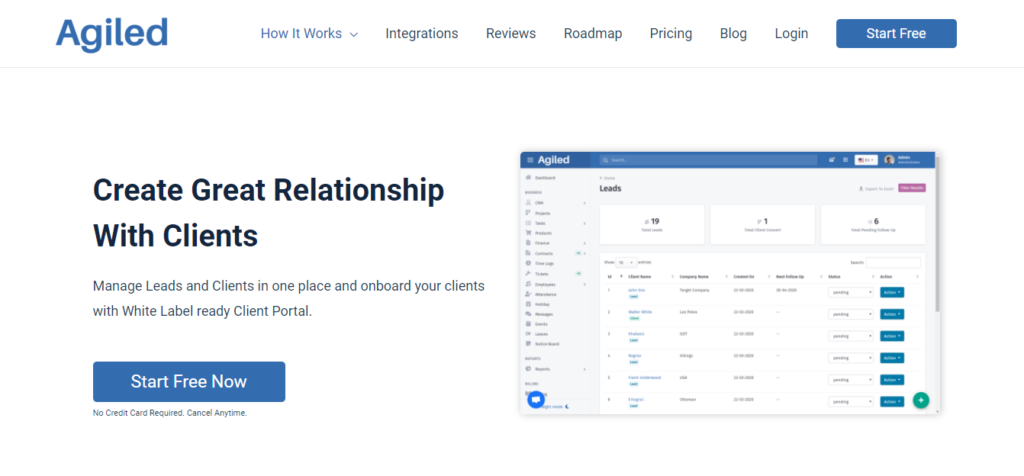
What is CRM software?
Customer relationship management (CRM) software is a storage and management tool you can use to store and manage your client’s data. It offers a wide range of management services for customer satisfaction, like contact details, customer interactions, contact management, purchase history, logged service issues, customer management, open inquiries, sales opportunities, sales process, and marketing campaigns.
CRM is available in many forms depending on your company’s size and need.
This article covers:
- Operational CRMs
- Analytical CRMs
- Collaborative CRMs
- Campaign Management CRMs
- Strategic CRMs
- How To Choose CRM for your business
There are five different types of CRM software:
- Operational
- Analytical
- Collaborative
- Campaign management
- Strategic
1. Operational CRMs
Operational CRMs are the best platforms for your marketing, sales, and customer service departments to provide better support to your existing and potential customers in the future.
This tool is really helpful in automating your business processes, including:
- Marketing automation
- Sales automation
- Customer service automation
It allows different departments to work together on formulating, nurturing, and closing deals for your company.
Examples of Operational CRMs:
Hubspot and Salesforce are the two best examples of Operational CRMs.
2. Analytical CRMs
Analytical CRMs are helpful for companies to utilize the information they collect about customers. The information may include customer preferences, channels, points of contact, interests, contact records, etc.
Depending on the contact data, data mining components can gather some more information such as trends, and help to identify patterns in data sets. It allows the companies to utilize the data they already have to make better business decisions.
Examples of analytical CRM:
The best examples for Analytical CRMs are Zoho Analytics or Wave: Salesforce Analytics Cloud.
3. Collaborative CRMs
Collaborative CRMs are suitable for the marketing teams and sales teams to collaborate and share information about clients. The main emphasis of this CRM is on customer service.
It allows you to transfer information between departments like sales and marketing and support teams.
Examples of analytical CRM:
The best examples of this CRM are Pipedrive or Copper, which help you improve relationship management depending on customer interactions.
4. Campaign management CRMs
Campaign management CRMs work exactly the same way as analytical or operational CRMs. This CRM is a mixture of the features of both CRMs, having some additional features too. It basically helps you to collect customer databases and gives insight into running marketing or sales campaigns.
Examples of campaign management CRM:
The best example of this CRM is ActiveCampaign
5. Strategic CRMs
Strategic CRM mainly stresses customers. It is helpful in collecting information about customers and the interactions between them. This CRM works like Collaborative CRM in terms of dealing with customer collaboration and building relationships to improve your business.
Example of Strategic CRM:
The best examples are Pipedrive and Copper.
How to choose a CRM for your business?
There are different types of CRMs that are available for different purposes. If you want to make the best choice for your business, then you should choose a CRM depending on the needs and size of your company.
You must keep the following questions in your mind while choosing a CRM solution for your business:
- Do you want to automate your marketing or sales?
- Are you looking for solutions to analyze your customers?
- How would you like the departments at your company to collaborate?
- Do you focus on long-term relationships with your customers?
These questions will help you decide what features your want in a CRM solution for your business.
For more useful information, browse the resources guide today!
Related Articles:
